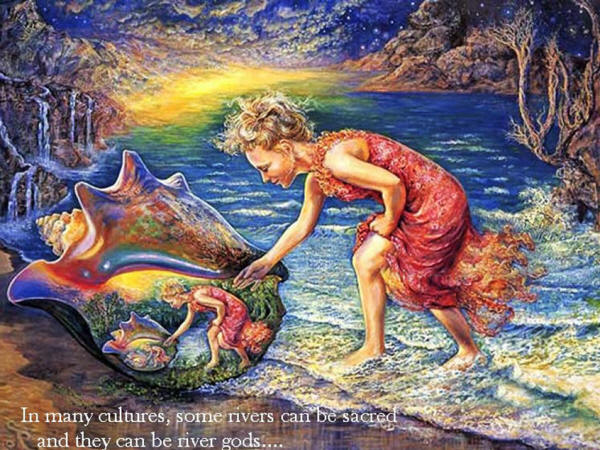|
by A. Sutherland
April 09, 2019
Over the centuries people
have observed water and its powers and created myths and legends
related to it.
All life arose once in the ocean, which is reflected in creation myths of many ancient cultures.
The sea is also a symbol of the unconscious.
Deep water represents death and supernatural. Many gods, spirits and monsters are associated with the sea and with natural phenomena such as tsunami and whirlpool.
Poseidon's daughter
Charybdis was changed into a sea animal and was most likely the
personification of a dangerous whirlpool. Sailors who came too close
to her risked dying.
The christian baptism symbolizes the cleansing and washing of the sin.
In Hinduism, water is
used to bathe and purify god images used in rites.
Katsushika Hokusai: The Great Wave Off the Coast of Kanagawa.
Public Domain
He was highly respected
by sailors and others who praised him in hope of keeping this god
happy. It would probably guarantee smooth waters and a safe sea
journey.
In Aboriginal myth, the Wandjina Rain Spirit is the controller of the "Seasons" and the bringer of rain, which is crucial for life.
The constant movements of the waves symbolize stability, change, joy or sorrow and tide waves were linked with destruction and re-birth. In dreams, they are believed to symbolize fear of change.
The river symbolizes fertility, irrigation of our planet, the running water and reflects the creativity of nature and time.
It also symbolizes the border between two worlds:
In many cultures, some rivers can be sacred and they can be river gods as well.
Styx, for example,
is a deity, the river of death and one of the five main bodies of
water that bordered Tartarus in Greek mythology.
Hapi was the early
Egyptian god of the Nile River. He used the Nile's annual floods to
feed the land and bring fertility. He provided water, food and the
annual flooding of the Nile River.
In the Shinto faith, waterfalls are sacred and stand beneath them is said to be purify one's soul. Tranquility, peace and contemplation are traditionally represented by waterfall.
In a Shinto shrine, the faithful wash their hands and rinse their mouth with water from a long wooden ladle before praying, putting their hands close to their face, bowing and meditating.
Flowing water also
remains a fundamental element. Essential before diving in the bath
or in hot springs, purifying oneself by washing is an expression of
ancestral body purification rites, the Shinto believers say.
Water was used in
witches' trials because it was believed that this "pure" element
like water would reject those who were in league with the devil.
|




